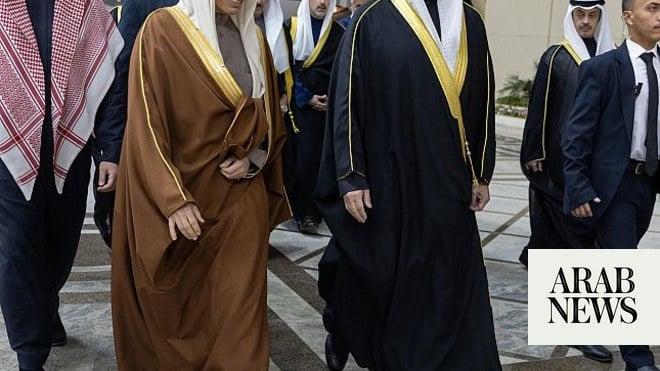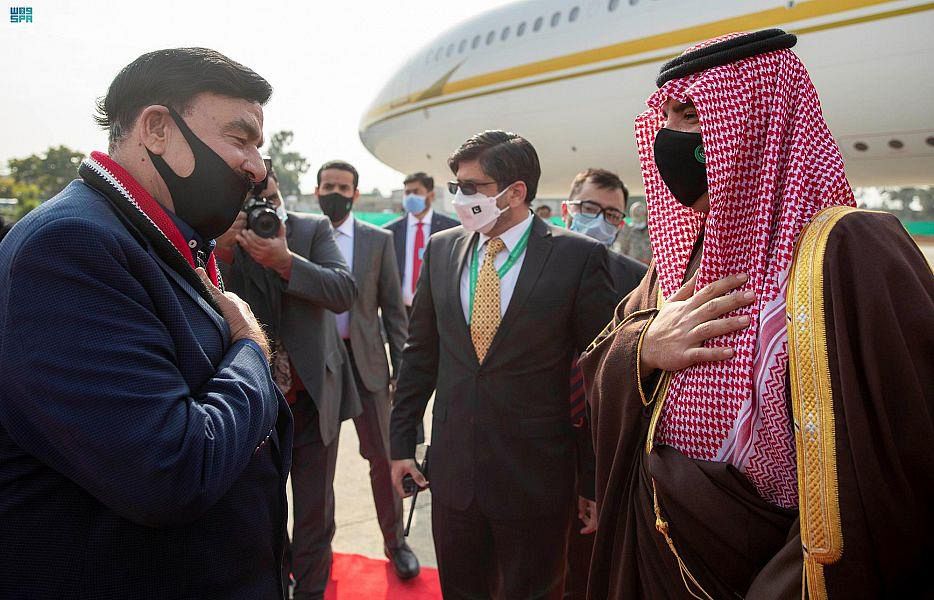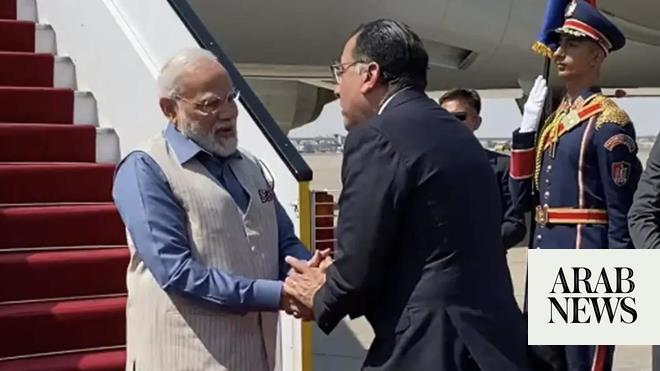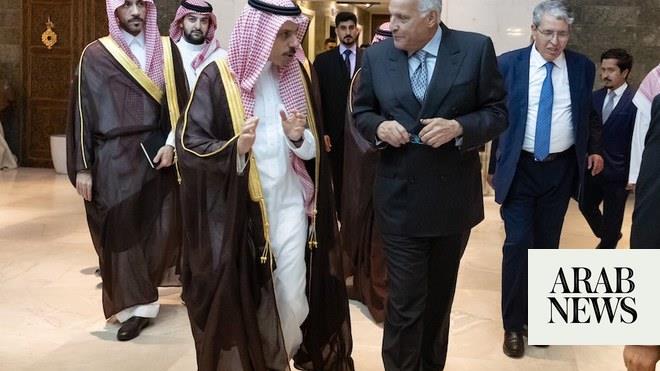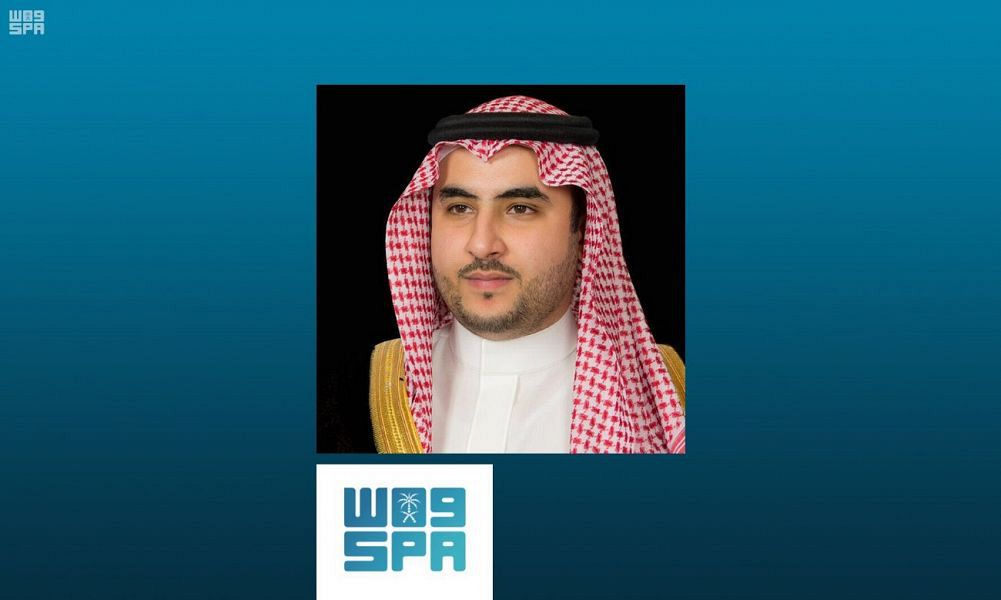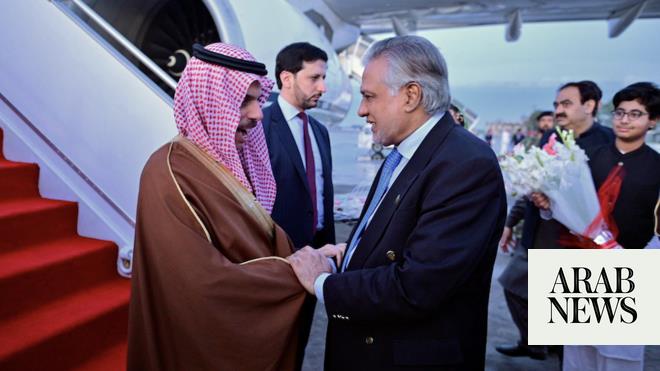
ISLAMABAD: Saudi Arabia’s Foreign Minister Prince Faisal bin Farhan arrived in Pakistan on Monday on a two-day visit aimed at enhancing bilateral economic cooperation, with local media widely showing footage of the Saudi official being received by Pakistani Foreign Minister Ishaq Dar.
The Saudi foreign minister’s visit comes a little over a week after Crown Prince Mohammed bin Salman met Pakistani Prime Minister Shehbaz Sharif in Makkah and reaffirmed the Kingdom’s commitment to expedite an investment package worth $5 billion that was previously discussed.
Upon his arrival at the Noor Khan air base in the garrison town of Rawalpindi, the Saudi foreign minister, who is leading a high-level delegation comprising several top ministers, was accorded a red-carpet welcome by Pakistani officials.
“A week after Prime Minister Shahbaz Sharifs visit to Saudi Arabia (April 6-8), a high-level delegation of Saudi Arabia is coming to Pakistan,” the Pakistani information ministry said in a statement shared with journalists.
“The Saudi delegation will consult on the next stages of investment and implementation issues,” the statement added, saying Saudi Arabia’s planned investment in the Reko Diq gold and copper mining project would also be discussed during the visit.
On Sunday, Pakistani state media reported Saudi Arabia was likely to invest $1 billion in the mine project in Pakistan’s southwestern Balochistan province, one of the worlds largest underdeveloped copper-gold areas.
Riyadh was also interested in investing in agriculture, trade, energy, minerals, IT, transport and other sectors in Pakistan, the statement said.
“As a result of this visit, Pakistans export capacity will increase, joint ventures will be launched and new opportunities will be paved.”
The Pakistani foreign office said last week the Saudi delegation would comprise the foreign minister, minister of water and agriculture, minister of industry and mineral resources and deputy minister of investment as well as senior officials from the Saudi energy ministry and the Saudi Fund for General Investments.
The Saudi delegation is expected to hold meetings with the Pakistani president, the prime minister, the foreign minister and other ministers, as well as the army chief and members of the apex committee of Pakistans Special Investment Facilitation Council, set up last year to oversee all foreign funding.
The Saudi government has not yet commented on the agenda of the visit.
Cash-strapped Pakistan desperately needs to shore up its foreign reserves and signal to the International Monetary Fund (IMF) that it can continue to meet requirements for foreign financing that has been a key demand in previous bailout packages. Pakistans finance minister, Muhammad Aurangzeb, is currently in Washington to participate in spring meetings of the International Monetary Fund and World Bank and discuss a new bailout program. The last loan deal expired this month.
Pakistan and Saudi Arabia enjoy strong trade, defense and cultural ties. The Kingdom is home to over 2.7 million Pakistani expatriates and the top source of remittances to the cash-strapped South Asian country.
Saudi Arabia has often come to cash-strapped Pakistan’s aid in the past, regularly providing it oil on deferred payments and offering direct financial support to help stabilize its economy and shore up its forex reserves.
Last year, Saudi Arabias finance minister said the Kingdom was changing the way it provides assistance to allies, shifting from previously giving direct grants and deposits unconditionally.
"We used to give direct grants and deposits without strings attached and we are changing that. We are working with multilateral institutions to actually say we need to see reforms," Finance Minister Mohammed al-Jadaan said at the World Economic Forum in Davos last January.
"We are taxing our people, we are expecting also others to do the same, to do their efforts. We want to help but we want you also to do your part."
Saudi Arabia and other Gulf Arab states like the United Arab Emirates and Qatar have increasingly moved towards investing rather than extending direct financial aid.




